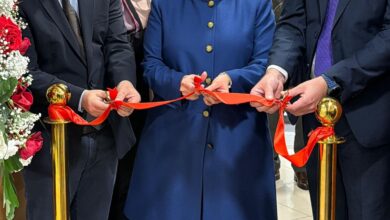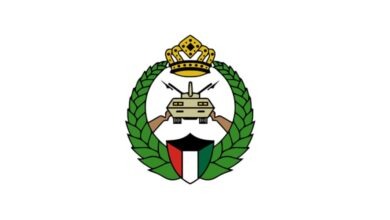GCC Ministerial Council concludes 165th session in Kuwait, highlights regional priorities

The Ministerial Council of the Gulf Cooperation Council (GCC) concluded its 165th session in Kuwait, reaffirming the bloc’s unified positions on regional and international issues, including Palestine, Iraq, Syria, Lebanon, Yemen, and Iran.
The session was held alongside the second ministerial meeting of the GCC-Japan Strategic Dialogue, attended by Japanese Foreign Minister Iwaya Takeshi.
The Council praised the results of the joint meeting with Japan, emphasizing the importance of implementing the joint action plan under the GCC-Japan Strategic Partnership, reports Al-Jarida daily.
It highlighted the need for deeper cooperation in political, economic, and security fields, reflecting the growing significance of Japan as a strategic partner.
On the humanitarian crisis in Gaza, the Council called for an immediate and comprehensive ceasefire, the release of hostages and detainees, the protection of civilians, and the swift delivery of humanitarian aid.
It condemned what it described as genocide by Israeli forces and denounced the deliberate blockade that has led to famine. The Council urged all countries to recognize the State of Palestine to end Israeli occupation and secure the Palestinian people’s legitimate rights.
Reaffirming support for Kuwait’s sovereignty, the Council stressed the importance of Iraq’s full compliance with the 2012 Khor Abdullah navigation agreement and called for completing the demarcation of maritime borders beyond Marker 162 under international law.
On the Dorra gas field, the Council reiterated that the field lies entirely within Kuwait’s maritime areas and that ownership is exclusively shared by Saudi Arabia and Kuwait. It categorically rejected any third-party claims over the Dorra field or the submerged divided zone.
The Council welcomed the agreement to resolve the crisis in Syria’s Sweida Governorate, commending President Ahmad al-Sharaa for his commitment to accountability and reforms. It reaffirmed support for Syria’s unity, sovereignty, and security, while condemning continued Israeli violations.
On Lebanon, the Council endorsed Prime Minister Nawaf Salam’s decision to restrict weapons possession to the state, in line with the Taif Agreement and UN resolutions. It condemned Israeli attacks on Lebanon and welcomed the UN Security Council’s decision to extend the UNIFIL mandate until December 2026.
The Council stressed the need to protect maritime security and international shipping lanes from threats, including attacks on commercial vessels.
It underscored respect for freedom of navigation under international law and called for collective efforts to safeguard trade routes vital to global stability.
Reiterating its position on Iran, the Council emphasized the importance of constructive negotiations to reach a comprehensive solution to the Iranian nuclear issue. It insisted that talks should address not only nuclear concerns but also the broader security issues and regional threats that directly affect GCC states.
Follow The Times Kuwait on X, Instagram and Facebook for the latest news updates












